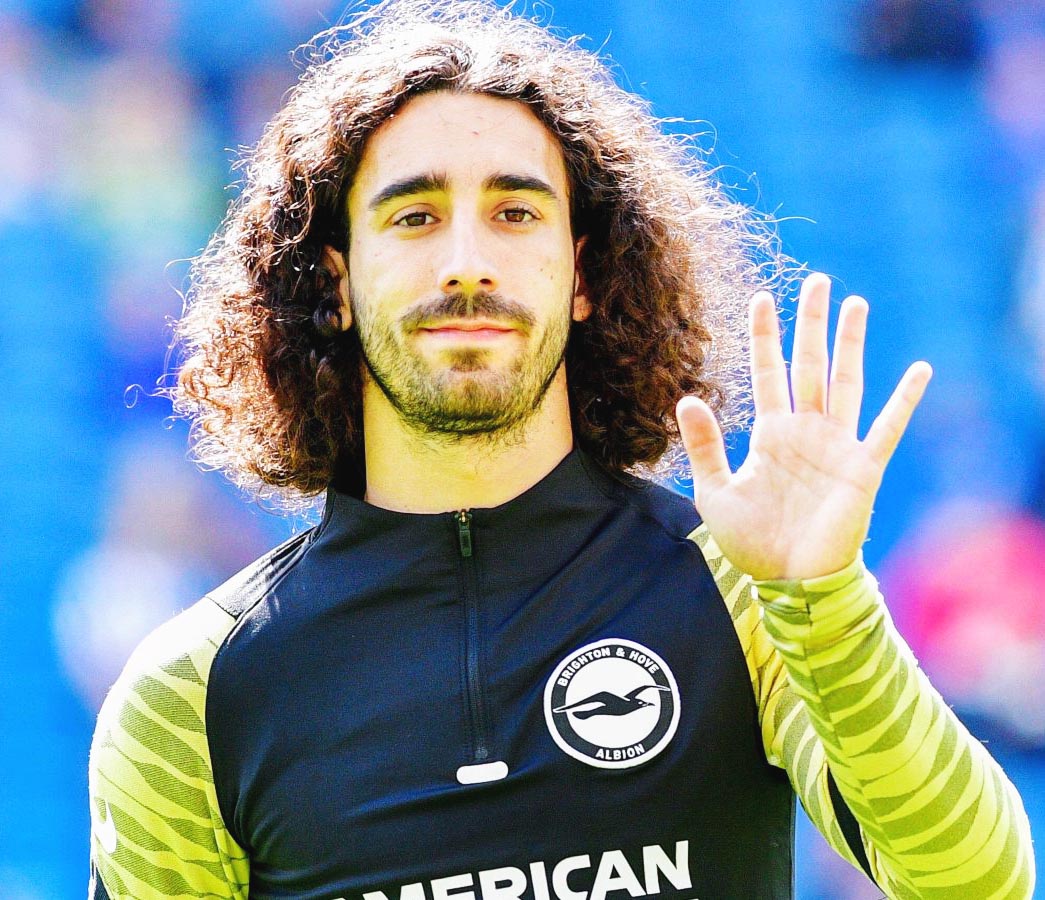MANCHESTER, England, (Reuters) – Chelsea committed a reported 62 million pounds ($74.72 million) yesterday to buy Spanish left back Marc Cucurella from Brighton & Hove Albion with the south coast club collecting a 46 million pound profit on a player they had signed just 12 months ago.
The transfer is one of the most striking examples yet of just how much a player’s value is impacted by having proven they can cope with the demands of the Premier League — even for just one season.
In August last year, Brighton bought Cucurella from Spanish club Getafe for around 16 million pounds and he enjoyed an impressive first campaign in the English top flight.
Champions Manchester City were keen to sign the Barcelona youth product, but baulked at Brighton’s asking price and Chelsea, now owned by American Todd Boehly and private equity backers, stepped in to seal the deal for a reported 55 million pounds plus add ons.
Brighton manager Graham Potter said the club didn’t need to sell the player but unsurprisingly acknowledged it was good business.
“I think the right fee has been got and it’s another situation where everyone has won,” he said.
“The player has got a great opportunity, the selling club have got a good fee and the buying club have got a good player as well. So win, win, win all around,” he said.
Cucurella’s agent would no doubt concur.
Brighton pulled off a similar piece of business last year when they sold central defender Ben White, who also had played just one season in the top flight, to Arsenal for a reported 52 million pounds.
White had come through the youth ranks at Brighton and so that deal represented a 100% profit for the club and as with Cucurella, the price raised many eyebrows.
In fact, the sales of Cucurella and White exceed what Brighton paid to build their Amex stadium which cost 93 million pounds.
But while the Seagulls may be gaining a reputation as masters of maximising value for their talent, the impact of being a proven Premier League player on a transfer fee has been shown elsewhere.
Brazilian forward Richarlison signed for Watford in August 2017 for 11 million pounds and a year later Everton paid over three times that amount to bring him to Goodison Park.
Spending 35 million pounds on a player who had scored five goals in his debut season in England seemed extravagant at the time but after impressing on Merseyside in July he was sold to Tottenham Hotspur for a fee of 50 million plus a possible further 10 million.
Wolverhampton Wanderers signed forward Diogo Jota from Atletico Madrid for 12 million pounds when they were in the second tier Championship but after two seasons in the Premier League he was worth 40 million to Liverpool.
With the Premier League regarded as the top competition in the world it is clear that managers for top teams want to sign players they are sure are ready for that level.
The effect can be seen also in smaller deals too.
Irish defender Nathan Collins, who made just 18 starts in the top flight for Burnley, saw his value go from the 12 million pounds the Clarets had paid to Stoke City to 21 million Wolves forked out for him last month.
That works out as 500,000 pound increase in value for every match Collins played in the Premier League.
The calculation for Cucurella however shows that his market value went up by an impressive 1.3 million pounds per game.
The Chelsea purchase was described as “nonsensical” by former Arsenal defender Martin Keown.
“It’s an incredible amount of money. I think it’s too much. Cucurella, as good as he is, I think there are still players out there that are better,” he told Talksport.
“It does feel like it’s panic buying. The new owner has come in and he wants to make a difference. On the eve of the new season he’s making a statement with that kind of signing. Is it overspending? I think maybe it is.”

